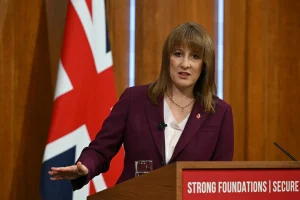Following the death of Charlie Gard last year from a rare genetic illness, Charlie’s parents are pressing for ‘Charlie’s Law’ to be introduced. Rebecca Fitzpatrick, partner and specialist in health law at Browne Jacobson, discusses its legal implications with Lawyer Monthly.
The Charlie Gard case was a best interests case in 2017, involving an infant boy born with a rare incurable genetic disorder that causes progressive brain damage and muscle failure. The case became controversial because the medical team and parents disagreed about whether experimental treatment was in the best interests of the child, and so an application was made to the High Court to decide what was in Charlie’s best interests. The court agreed with the view put forward by the clinical team, and made an order that it was not in Charlie’s best interests to undergo the experimental treatment. Subsequent appeals failed, and Charlie died shortly afterwards. The case attracted huge international media and social media attention, with even President Trump and the Vatican becoming involved.
Following the case, Charlie’s parents have campaigned for a new “Charlie’s Law” to be introduced. One aspect of this is for there to be a requirement that the parties try to resolve disagreements as early as possible by way of independent mediation, before applying to the court. In his judgment, Mr Justice Francis said he recognised that ‘negotiating issues such as the life or death of a child seems impossible and often will be’, but he believed it should be attempted in all cases, even if all it achieved was a greater understanding between the parties.
What does mediation entail and what are the current laws around it in these cases?
Medical Mediation attempts to resolve conflicts in the medical setting through the use of an impartial third party.
This can involve health professionals and families who cannot agree on treatment options for family members, or other conflicts, such as communication breakdown and end of life care.
At the present time, mediation is not a formal requirement in disputes concerning the medical care of children or incapacitated adults and although it is encouraged, public funding is not available for such mediation.
What would the legal implications be on other cases if it was introduced? For example could it impact on the law around incapable adults?
Recent pilots in cases concerning adults have indicated that mediation can lead to a significant number of cases resolving, thereby obviating the need for a formal application to court, which has to be welcomed. However, cases involving babies in a palliative care situation, where parents disagree with the treatment plan, are among the most difficult to resolve in my experience.
In my view, it would be sensible to have a more formal arrangement, so mediation can be offered early on in these disputes, with funding for families so they can seek advice in preparing for mediation. Trying to get each party to really listen to the other and agree a way through can be very effective. Even if the case still goes to court, it can help to narrow the issues.
The effect of such high-profile cases on the medics, families and trust involved and the role of social media and how this can be managed?
Over 25 years in practice, I have seen these cases from all sides. I initially represented families but, for the last 13 years, I have represented NHS providers – trusts, private hospitals and clinical commissioning groups. My cases have included representing an Orthodox Jewish family with a dying baby and seeing first-hand what an impossible situation it was and how tortuous it was for them. But more recently, I have also seen how these cases deeply affect the clinical team.
One of the biggest issues in both the Charlie Gard and the Alfie Evans cases was the impact of social media. These cases were immensely high profile, and the extent of social media attention caused huge distress to the doctors, hospital staff and other patients affected. The Court of Appeal in Evans expressed “dismay and concern….we were told that some members of the hospital staff could not get to the hospital because of road blockages ……hospitals must be places which provide peace and calm. What we have been told occurred is the very opposite.”
My personal view is that it would be better for these very contentious cases to be heard in private, or in public on an anonymous basis, at least initially, so the child and the trust are not named until the case is concluded. The cases would still receive a lot of coverage, but there wouldn’t be this social media minefield. Therefore, it is vital that the Trust involved seeks early legal advice so that, where appropriate, an application can be made of an anonymity order.
But, in these high-profile cases, the problem is our legal system hasn’t caught up with how to manage social media. Once in the public domain, it will usually not be possible to obtain an anonymity order. In such cases, it is very important for Trusts to make sure there is a balanced picture of the case publicly available, so that the public can see its full context. Whilst there may be a need to seek advice on confidentiality issues, it will usually be possible to redress the balance somewhat by, for example, highlighting key aspects of the evidence before the court that have been highlighted in a published judgment.
It will also be important for the Trust to ensure appropriate support is provided to staff and families affected, including protection from harassment, abuse or defamation.




















